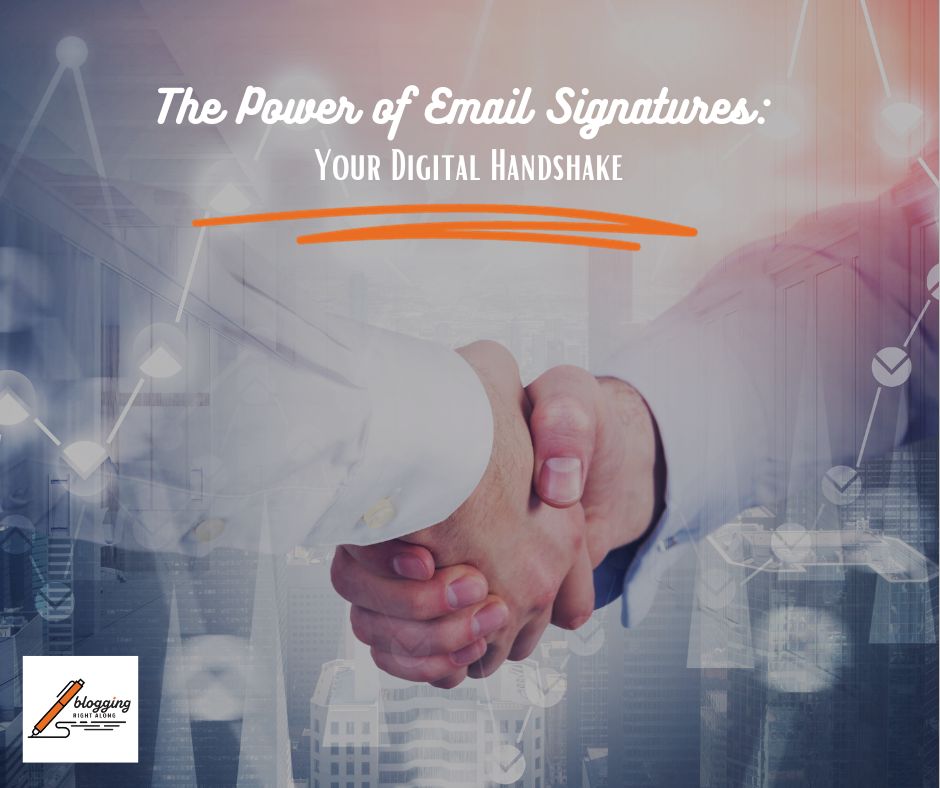The Power of Email Signatures: Your Digital Handshake
 In the realm of digital communication, where emails serve as the primary mode of professional interaction, the often overlooked hero is the email signature. It’s that subtle sign-off at the end of your message, a digital representation of your professional identity. While it may seem small in size, its impact and importance in conveying crucial information should not be underestimated.
In the realm of digital communication, where emails serve as the primary mode of professional interaction, the often overlooked hero is the email signature. It’s that subtle sign-off at the end of your message, a digital representation of your professional identity. While it may seem small in size, its impact and importance in conveying crucial information should not be underestimated.
What should an email signature include?
Your email signature is your digital business card, representing you and your brand. It should encompass essential elements:
Your Name: This might seem obvious, but clarity in stating your name is fundamental.
Title and Company: Mention your designation and the company you represent. It gives context and credibility.
Contact Information: Include your phone number, email address, and website for easy contact.
Professional Links: Add links to your LinkedIn profile or other professional platforms.
Logo or Image: Incorporating your company’s logo or a professional headshot adds a personal touch.
Legal Disclaimers (if required): Depending on your industry or region, legal disclaimers might be necessary.
Call to Action (optional): It could be a link to your latest blog post, a webinar, or a promotional offer.
Why are Email Signatures Important?
Professionalism: An email signature instantly adds professionalism and credibility to your correspondence. It solidifies your identity and affiliation with a particular organization or role.
Contact Information Accessibility: It serves as a convenient means for recipients to reach out to you directly. Your contact details are readily available without them having to search for it.
Marketing and Branding: Your email signature is a subtle marketing tool. It reinforces your brand by displaying your company’s logo and can subtly promote events, services, or products through linked CTAs.
Consistency: It maintains consistency across all your communications, ensuring that essential information is always included. This consistency is vital for professional identity and brand representation.
Efficiency: Email signatures save time. Rather than typing out your details with every email, an automatic signature streamlines the process, making communication more efficient.
Legal Compliance: In some professions or industries, including legal disclaimers in email signatures is crucial for compliance and protection.
Best Practices for Effective Email Signatures
Keep it Concise: While including pertinent information is crucial, a cluttered signature can be overwhelming. Stick to the essentials.
Mobile Compatibility: Ensure your signature is mobile-friendly. Given the rise in mobile email usage, a responsive signature is vital.
Design and Aesthetics: A clean and professional design ensures readability. Avoid using too many fonts or colors.
Regular Updates: Keep your signature updated with any changes in contact information or roles.
An email signature might seem like a small element in your digital correspondence, but its impact is substantial. It acts as your virtual handshake, leaving an impression and reinforcing your professional identity. Crafting a well-thought-out email signature not only streamlines communication but also contributes to your overall brand image. So, the next time you draft an email, remember that your signature is not just an afterthought—it’s a powerful extension of your professional persona.